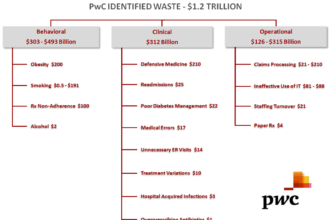 Although Health and Human Services has delayed compliance with the International Classification of Diseases 10 (ICD-10) codes until October 1, 2014, medical practices and hospitals are gearing up to incorporate and manage the expanded new ICD-10 codes in order to comply with HIPAA, Medicare and Medicaid.
Although Health and Human Services has delayed compliance with the International Classification of Diseases 10 (ICD-10) codes until October 1, 2014, medical practices and hospitals are gearing up to incorporate and manage the expanded new ICD-10 codes in order to comply with HIPAA, Medicare and Medicaid.
 Although Health and Human Services has delayed compliance with the International Classification of Diseases 10 (ICD-10) codes until October 1, 2014, medical practices and hospitals are gearing up to incorporate and manage the expanded new ICD-10 codes in order to comply with HIPAA, Medicare and Medicaid.
Although Health and Human Services has delayed compliance with the International Classification of Diseases 10 (ICD-10) codes until October 1, 2014, medical practices and hospitals are gearing up to incorporate and manage the expanded new ICD-10 codes in order to comply with HIPAA, Medicare and Medicaid.
With more than 157,000 diagnostic codes – up from 17,500 in ICD-9, as well as new alphanumeric category classifications, the medical community is looking at its practices, procedures and data sharing techniques to meet compliance.
Since physicians and other providers use the ICD system to classify and code all diagnoses, symptoms, and procedures recorded in conjunction with hospital care, incorporating massive data changes that will be brought on from ICD-10 is forcing everyone to look at their systems, upgrade their software to accept the new codes and verify procedures/milestones for data sharing at the point of care.
In order to properly meet new requirements it is often necessary to review existing procedures. Below are seven tips to improve secure document delivery transmission communication with partners, hospitals, physicians and others in order to drive meaningful cost reductions, efficiency improvements in the face of changing regulations.
- Incoming faxes should be automatically routed electronically to recipients, which is more reliable, safer and faster that printing out on standalone public fax machines or MFPs.
- Outgoing faxes should be able to be sent directly from a user’s desktop through any application, including ICD-10 applications and electronic medical record systems.
- Faxes should always be archived to a secure location in order to meet compliance requirements.
- Allow for customized cover pages to easily identify the sender so return faxes can be sent to the proper department.
- Leverage Active Directory for user management including security, authentication and contact management.
- Maintain detailed transaction logs in order to maintain a complete audit trail of faxing.
- Maintain comprehensive fax tracking in order to monitor faxes through the delivery process and record events in a searchable database.
Even as the additional codes provide more detail in the electronic transactions and help physicians identify specific health conditions, the massive increase in data will test the medical community in ways it has never seen before. Deploying a best practices approach to how medical data is maintained, transmitted and communicated is key to successful fax and file transfer communication and improved collaboration.
(Security and ICD-10 / shutterstock)








